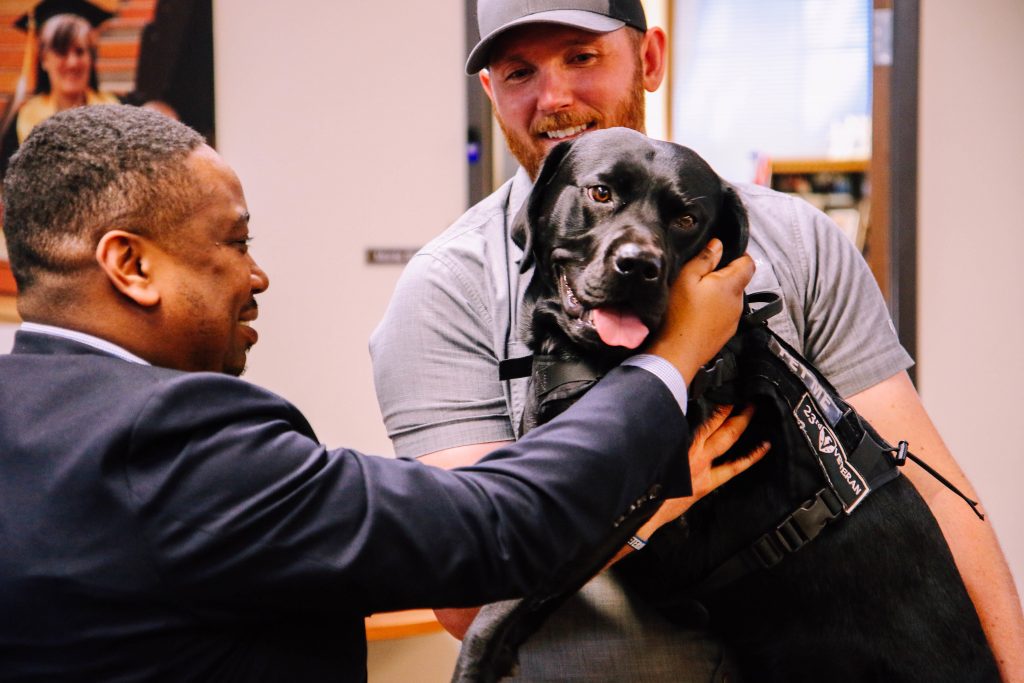NEWS
Lesser-known Benefits for Veterans

Honored veterans bring to mind images of men and women who served their country with honor and bravery. While many folks are familiar with the customary benefits available to veterans, a wealth of lesser-known perks is often overlooked. These hidden benefits can make a big difference in the lives of veterans and their families, giving them vital support and help in many areas of life.
Property tax exemptions
Many states offer veterans property tax exemptions or reductions as a token of appreciation for their service. These exemptions can differ from state to state, and some states may also provide tax relief for the surviving spouses of veterans. Veterans can learn more about how these exemptions can result in substantial savings by visiting Benefits.com.
Home loans and shelter
Veterans can journey to their dream home through the gateway of VA home loans. These loans make it less challenging to purchase a home because of their favorable terms and low-interest rates. Moreover, housing benefits extend to crafting accessible living spaces for disabled veterans, making their sanctuaries genuinely welcoming.
Financial grants
Pensions and disability benefits
Disability compensation is a lifeline for veterans struggling with injuries sustained in the line of duty. It gives them critical financial help, and the amount depends on how bad their conditions are. Furthermore, pensions offer a comforting hand to low-income veterans and surviving spouses, alleviating financial burdens.
Family and survivor support
Dependency and Indemnity Compensation (DIC) and the Survivor Benefit Plan (SBP) provide comfort to service members’ loved ones after they make the ultimate sacrifice. These benefits safeguard the future of their beloved kin, ensuring unwavering support during trying times.
Advantages for homeless veterans
Outreach and support services
Dedicated outreach programs serve as beacons of compassion, identifying and assisting homeless veterans with access to resources and support.
Housing and shelter programs
Numerous housing and shelter programs stand as sanctuaries, offering homeless veterans a stable living environment and a chance to rebuild their lives.
Legal assistance for veterans
Legal aid and support
Veterans find a shield of advocacy in legal aid and support, extending a guiding hand in disability claims, benefits appeals, and family law issues.
Disability claims and appeals
Veterans who are unsure how to navigate the disability claims and appeals process can find a glimmer of hope in the assistance attorneys provide.
Estate planning and benefits counseling
Veterans can take the first steps toward securing the future of their loved ones with the assistance of trained professionals by engaging in estate planning and receiving benefits counseling.
Educational support
Veterans often rank educational benefits as one of their most prized benefits. The GI Bill and Post-9/11 GI Bill stand as beacons, illuminating pathways to higher education and vocational training. The Yellow Ribbon Program helps veterans pay for college after they have exhausted their benefits under the GI Bill.
Veteran-owned business certification
The seal of veteran-owned business certification opens gates to government contracts and fruitful opportunities. This mark of distinction celebrates and supports the endeavors of veteran entrepreneurs.
Final thoughts
Veteran benefits, especially those that are less well-known, deserve more attention. These valuable benefits, including support from housing and education to business start-ups and franchises, give hope and comfort to the courageous men and women who defend their nation. Spread the word so all veterans can learn about and benefit from these options.
Kenneth is a proud native of sydney, born and raised there. However, he pursued his education abroad and studied in Australia. Kenneth has worked as a journalist for almost a decade, making valuable contributions to prominent publications such as Yahoo News and The Verge. Currently, he serves as a journalist for The Hear Up, where he focuses on covering climate and science news. You can reach Kenneth at [email protected].










